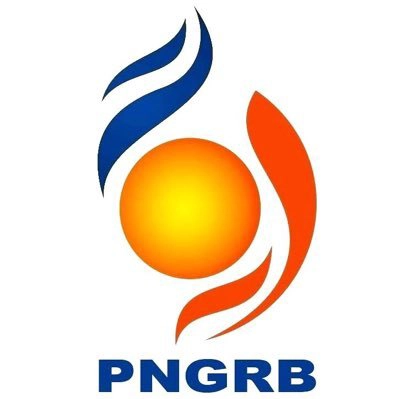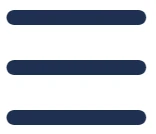
Third-Party Inspections and T4S Audits for Oil & Gas Sector
Quality Austria Central Asia third-party inspections play a vital role in maintaining safety, compliance, and optimal resource utilization. These independent assessments, conducted by qualified specialists, offer a critical layer of oversight throughout the exploration, production, and transportation of oil and gas.
Third-party inspections are crucial for India's oil and gas sector for the following reasons:
- Safety Assurance: Oil and gas operations involve inherent risks, from potential well blowouts to pipeline leaks. Third-party inspections identify potential hazards, ensuring adherence to safety protocols and minimizing accident risks.
- Regulation Compliance: India has stringent regulations for oil and gas activities, from environmental protection to operational standards. Third-party inspections verify compliance with these regulations, reducing legal risks and protecting the environment.
- Quality Control: Inspection services ensure equipment integrity, adherence to material specifications, and proper installation procedures. This leads to improved operational efficiency, minimizes downtime, and extends equipment lifespan.
- Transparency and Trust: Independent assessments foster transparency and trust among stakeholders – government agencies, oil and gas companies, and the public. This strengthens the industry's reputation and promotes responsible resource management.
Here are some key areas where QACA supports third-party inspections for India's oil and gas sector:
- Pipeline Inspections: Assessing pipelines for corrosion, leaks, and structural integrity, ensuring safe transportation of oil and gas.
- Facility Inspections: Evaluating refineries, processing plants, and storage facilities for adherence to safety and environmental regulations.
- Non-Destructive Testing (NDT): Employing specialized techniques like ultrasonic testing and radiography to assess the condition of equipment and pipelines without causing damage.
- Data Analysis and Reporting: Analyzing inspection data to identify trends, predict potential issues, and inform informed decision-making.
Benefits
- Compliance with PNGRB Regulations: Quality Austria Central Asia is PNGRB-empanelled TPIA (Third Party Inspection Agency) thus adhering to rigorous safety and quality standards.
- Cost-Effectiveness: Proactive maintenance and early detection of problems minimize downtime and costly repairs in the long run.
- Improved Risk Management: Independent assessments identify potential hazards and vulnerabilities, allowing for effective risk mitigation strategies.
- Enhanced Sustainability: Ensuring responsible environmental practices and resource utilization through adherence to regulations and best practices.
- PNGRB T4S Audits and Gas Pipeline Inspections: Ensuring Safety and Compliance
The Petroleum and Natural Gas Regulatory Board (PNGRB) in India plays a crucial role in safeguarding the public through rigorous inspection and audit programs for natural gas pipelines. As part of this effort, the T4S (Third Party Conformity Assessment) System has been established to ensure the competence and reliability of independent agencies carrying out pipeline inspections.
PNGRB T4S Audits
T4S Audits focus on evaluating the competence and professionalism of Third Party Inspection Agencies (TPIAs) involved in gas pipeline inspections. This comprehensive process, often conducted by accredited bodies, typically involves:
- Document Review: Assessing the TPIA's quality management system, technical procedures, and personnel qualifications against established standards.
- Site Visits: Observing the TPIA's inspection practices in action to verify adherence to procedures and best practices.
- Interviews: Holding discussions with TPIA personnel to gauge their knowledge, experience, and understanding of specific regulations and technical requirements.
A successful T4S audit earns the TPIA an empanelment with PNGRB, authorizing them to conduct various types of gas pipeline inspections. Quality Austria Central Asia is approved and empanelled TPIA with PNGRB
Gas Pipeline Inspection Services
Depending on the specific needs and regulations, a range of inspection services may be conducted on gas pipelines, including:
- Visual Inspection: Examining the external surface of the pipeline for signs of corrosion, leaks, or other damage.
- Internal Inspection: Utilizing specialized tools and techniques to assess the internal condition of the pipeline for factors like wall thickness, coating integrity, and presence of contaminants.
- Pressure Testing: Subjecting the pipeline to controlled pressure to identify potential weaknesses or leaks.
- Non-Destructive Testing (NDT): Employing advanced techniques like ultrasonic testing or radiography to evaluate the pipeline's structural integrity without causing damage.
- Smart Pig Inspections: Utilizing intelligent pigs equipped with sensors to gather detailed data on the pipeline's internal condition over long distances.
These inspections play a vital role in:
- Identifying potential threats: Early detection of issues like corrosion, leaks, or structural weaknesses can prevent catastrophic accidents and safeguard public safety.
- Ensuring regulatory compliance: TPIAs conduct inspections by strict PNGRB and industry standards, ensuring operators meet their regulatory obligations.
- Optimizing maintenance: Proactive identification of issues allows for targeted maintenance, minimizing pipeline downtime and optimizing operational efficiency.
- Promoting safety culture: The presence of independent inspections fosters a culture of safety within the gas pipeline industry.

For any queries or further information related to our services, please feel free to contact us at info@qacamail.com or call us at +919599619392. We are here to assist you!





